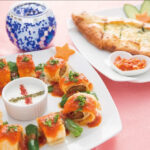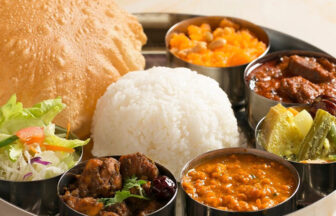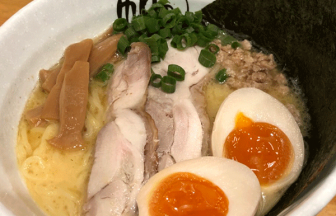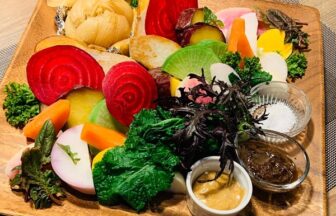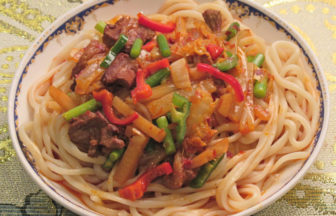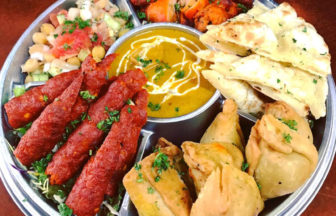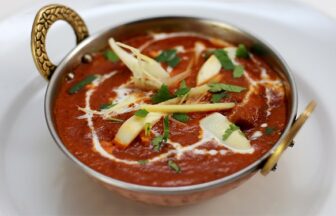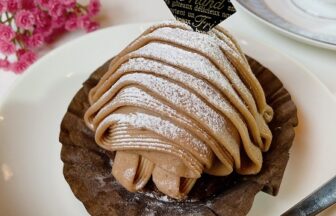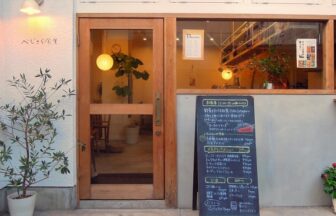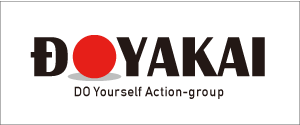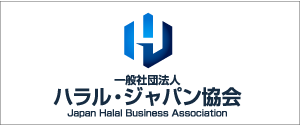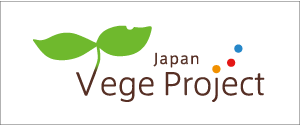Restaurant Morocco: A rare authentic Moroccan restaurant in Tokyo
Restaurant Morocco is a Moroccan restaurant located a six-minute walk from Kanda Station. Enjoy home-cooked meals centered around Morocco’s two signature dishes: tagine and couscous. We strive to recreate authentic Moroccan flavors without any fuss, striving to offer our guests an authentic Moroccan experience. The owner, Mr. El Hashimi, is originally from Morocco. He has run a Moroccan restaurant in Tokyo since 1996, relocating several times before finally opening his current restaurant in 2019. He speaks fluent Japanese, is a cheerful and friendly person who enjoys entertaining people, and is a former chef. He previously served as the restaurant’s chef until his leg became weak, so his wife and staff now handle the cooking. The restaurant’s exterior is a vibrant red reminiscent of the Moroccan flag, and the Islamic-inspired entrance design is a striking sight.
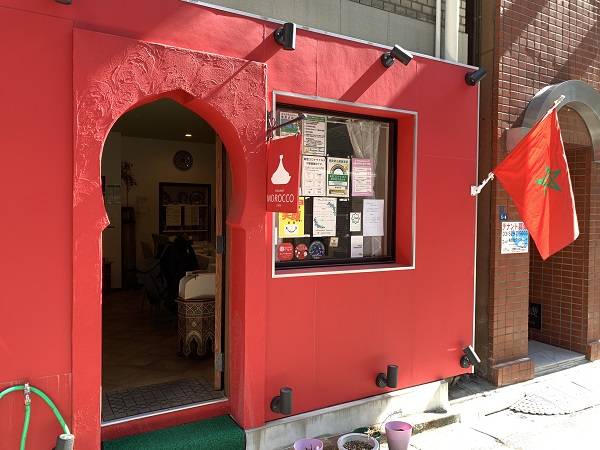
Exterior
The interior, unlike the flashy red exterior, is a completely ordinary restaurant. The seating is limited and well-spaced, allowing for a relaxing dining experience. Our dishes are 100% halal, so Muslims and everyone in between can enjoy them with peace of mind.
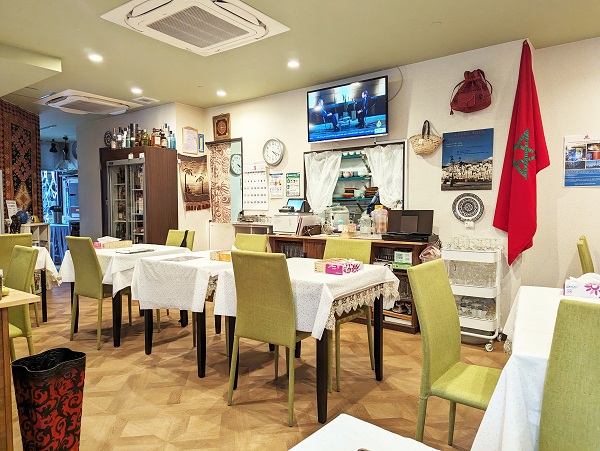
Inside the Restaurant
During lunchtime, from 11:30 AM to 2:30 PM, we offer our signature menu items at relatively affordable prices. Our most popular lunch dish is the “Meatball Tagine.”
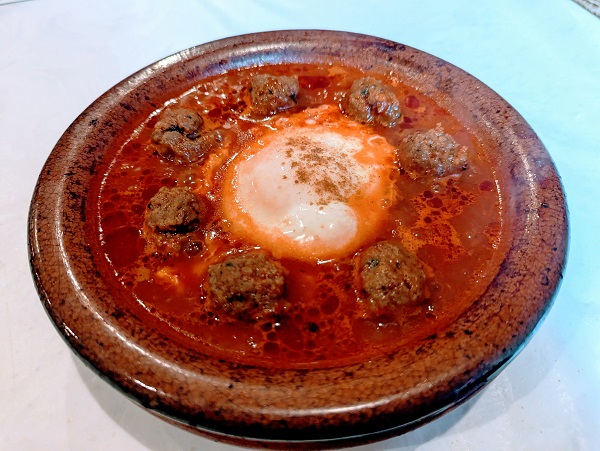
Meatball Tagine
This dish features 100% beef meatballs stewed in tomato sauce and spices. The spicy, rich tomato sauce pairs perfectly with rice, creating an outstanding combination. The soft-boiled egg in the middle adds a mellow flavor when crumbled. Tagine is a Moroccan national dish made by cooking meat, fish, and vegetables with spices in a distinctive clay pot with a conical lid. It uses very little water, utilizing the moisture contained in the ingredients to steam or simmer until tender. This is a sophisticated home-cooked dish that became popular in the desert regions of North Africa, where water is scarce.
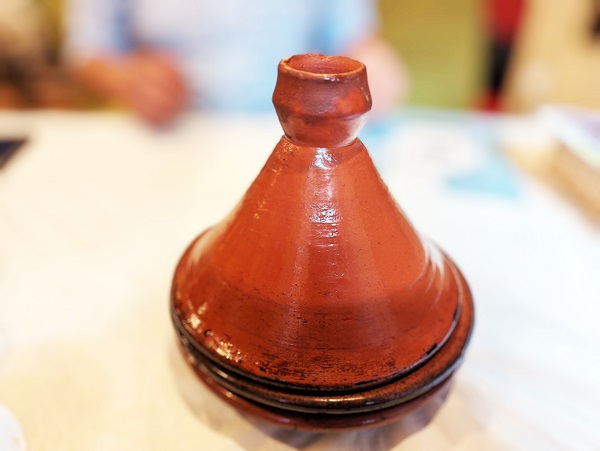
Tagine
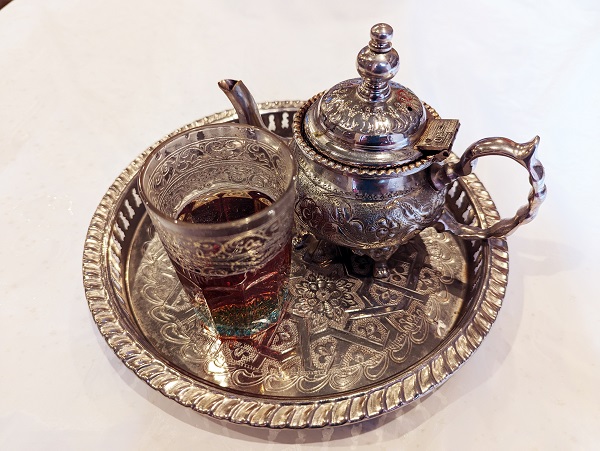
Mint Tea
After your meal, enjoy sweet mint tea. It is said that pouring it into the glass from a high position will allow air to enter, resulting in a mellow aroma.
Couscous is a common treat eaten after Friday prayers
In Morocco, where Islam is the official religion, Friday is the holiest day of the week, the day of congregational prayer. After praying at the mosque at noon, people gather with family and friends to eat a large plateful of couscous, greeting them with Jumaa Mubarak (Good Friday). Couscous is a granular pasta originating in Africa and also found in Europe, the Middle East, and South America. It’s known as the world’s smallest pasta, measuring just 1mm in diameter and smaller than a grain of rice. It’s eaten with steamed couscous topped with stewed meat and vegetables.
A popular dinner dish is “Vegetable and Chicken Couscous.” This healthy and filling dish features steamed couscous topped with a generous amount of vegetables and chicken. The couscous, saturated with broth, is addictively delicious.
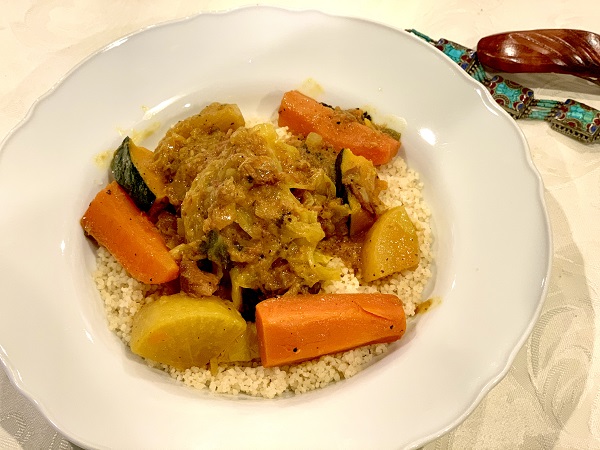
Vegetable and Chicken Couscous
The chicken is so tender it falls apart with a spoon. It’s also filled with chunks of beans, pumpkin, carrots, and radishes. Moroccan home cooking is seasoned fairly simply with turmeric, ginger powder, cinnamon, salt, and cumin. At this restaurant, you can enjoy couscous dishes such as “Beef and Vegetable Couscous,” “Vegetable and Lamb Couscous,” and “Couscous Royal.” Pairing preserved lemons and meat dishes with prunes or dried fruit is also interesting. Harira soup is a tomato-based dish reminiscent of spicy minestrone soup. It’s similar to miso soup in Japan, with flavors that vary from household to household. Moroccan salad is made by dicing vegetables such as tomatoes and onions and tossing them with lemon juice and olive oil. The use of olive oil in tagines and couscous is also a distinctive feature of Moroccan cuisine.
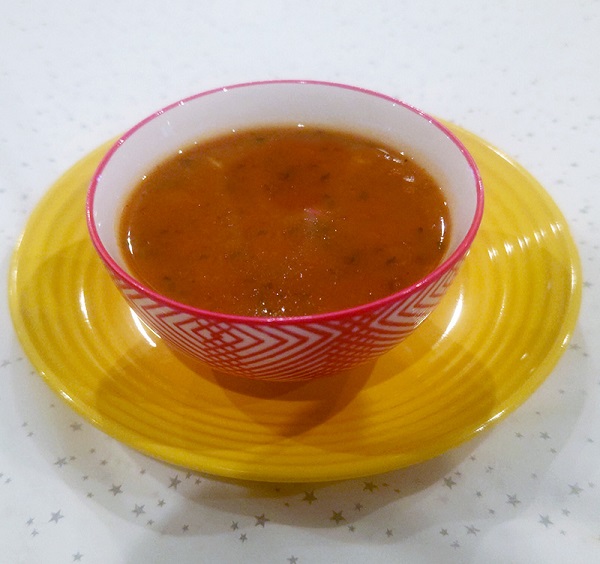
Harira Soup
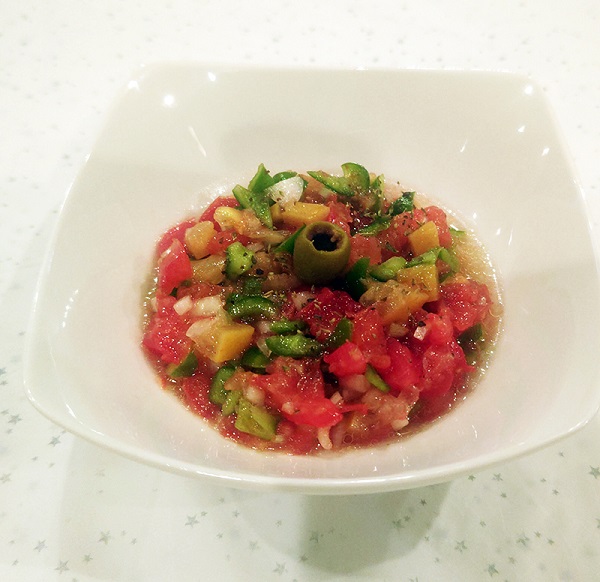
Moroccan Salad
The surrounding area is an office district, so the restaurant is quite busy with businessmen during weekday lunchtimes. When the restaurant is quiet, they’ll seat even single customers in a table for four, so it’s popular with female customers. The restaurant is decorated with Moroccan silverware and ornaments, and the Arabic TV has an exotic feel that makes it fun to just watch. When it’s time for prayer, the staff will be praying nearby, and the relaxed, free atmosphere will make you forget about Tokyo and soothe your soul. Be sure to enjoy the Moroccan atmosphere along with the delicious food.
Supervisor / Recommender

- Halal Supervisor and Foreigner Food Coordinator (Cooking, Consulting, Public Relations)
-
Click here for introduction
I currently work as an editor, but my previous job was as a chef, with many years of experience working in hospitals, restaurants, and the food service industry. Looking back, I think my connection to halal may have already been there.
Decades ago, I once worked in a cafeteria at an auction venue. Over 60% of the visitors were foreigners. Many Muslims were present, and the venue had a mosque-like prayer space. I remember being frequently asked questions about whether the meat was halal and what kind of meat it was. At certain times, the cafeteria would become as lively as a festival. The Indian restaurant next door would generously serve free biryani, curry, and sweet drinks to everyone who came. Over 100 people, including people wearing bright red turbans, galabeyas, and traditional attire, gathered in the cafeteria, all sitting around the same table and enjoying a truly enjoyable time. Looking back, it was iftar, the end of fasting, and I understand the significance of sharing, but at the time I was ignorant of halal and Islam, and didn't even consider how to respond. They only ate the curry made by the Indians in the restaurant. As I studied halal, I realized, "I wanted to eat Japanese food, but I couldn't." I regret not doing anything even though there was something I could have done.
If only it didn't contain pork! If only it didn't contain wheat or buckwheat! I could eat it... Food insecurity is different for each person.
That's why I think it's important to learn about the differences in culture, religion, and lifestyle that underlie it, and to create an environment where everyone can enjoy delicious meals in comfort.
The desire for delicious, safe, and secure food is universal. The times are calling for people to live in new ways that transcend borders and religions. I hope that halal can be a gateway to eliminating food insecurity, contributing even in some small way to a society where people can coexist and prosper with more liberal thinking, and to global harmony beyond.
Latest entries
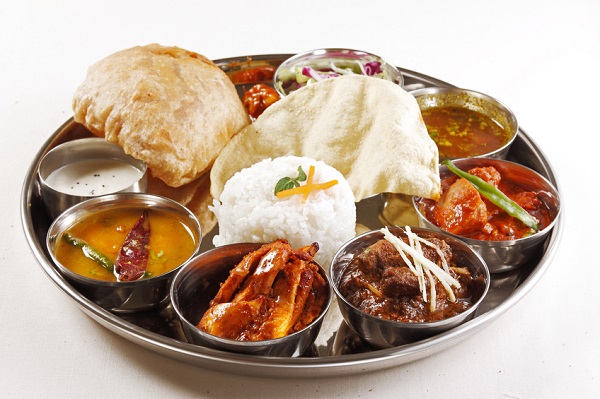 Tokyo2023年11月4日Dakshin South Indian Restaurant Otemachi Branch
Tokyo2023年11月4日Dakshin South Indian Restaurant Otemachi Branch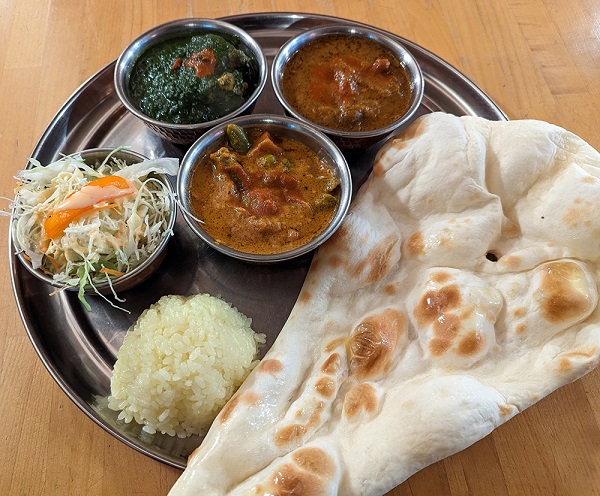 Tokyo2023年10月23日Gandhi Mahal
Tokyo2023年10月23日Gandhi Mahal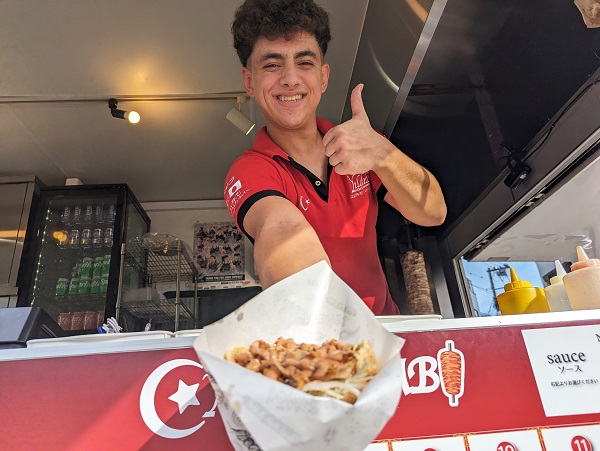 Tokyo2023年10月23日Yıldız KEBAB
Tokyo2023年10月23日Yıldız KEBAB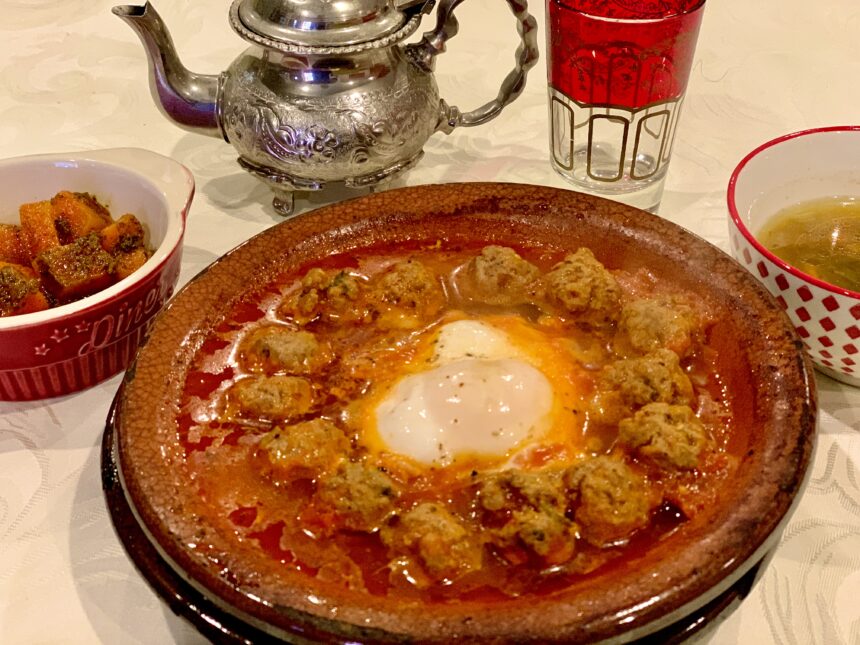 Tokyo2023年10月4日Restaurant Morocco
Tokyo2023年10月4日Restaurant Morocco









